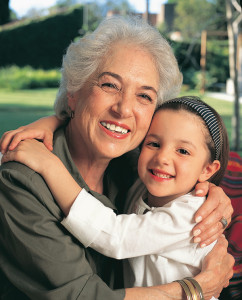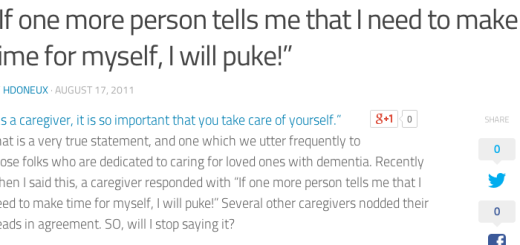Explaining Alzheimer’s to kids and teens: Resources to help
 During the last week of our National Caregivers Month campaign, we’ll be focusing on the needs of kids and teens. As adults, we struggle to cope with the changes we see in loved ones with dementia. In our lives, we have dealt with sadness, loss, disappointment and anger. But what about children and teens who watch a parent slowly slip away from their relationship as mother/father? Or children and teens who start to experience their relationship with their grandparents change as Alzheimer’s advances?
During the last week of our National Caregivers Month campaign, we’ll be focusing on the needs of kids and teens. As adults, we struggle to cope with the changes we see in loved ones with dementia. In our lives, we have dealt with sadness, loss, disappointment and anger. But what about children and teens who watch a parent slowly slip away from their relationship as mother/father? Or children and teens who start to experience their relationship with their grandparents change as Alzheimer’s advances?
Depending on the age of the “child” he/she may have difficulty understanding an illness that affects the brain. Children need to be told the truth, but of course adults need to take into consideration the developmental stage of their children, and share the truth in a way that makes sense to them. Sometimes too much information for a young child can just add to the confusion.
Obviously the older the child, the more they are capable of understanding what is happening medically. But just because they realize the medical what, it doesn’t mean that they will automatically comprehend the changes in their relationship with their parent or grandparent as the disease progresses. Our emotions are not always in synch with our knowledge!
Here are a few resources that you might find helpful to explain Alzheimer’s to kids and teens:
Grandpa, do you know who I am? This excellent HBO documentary is only 30 minutes long but it’s an incredibly powerful overview of the impact of this disease on kids. From the HBO web site: “This film tells five stories of children, ages 6-15, who are coping with grandfathers or grandmothers suffering from Alzheimer’s disease. Ultimately, the film shows how important it is to “˜go with the flow,’ offering up a variety of perspectives on how kids can handle a grandparent’s loss of memory through kindness, patience and compassion.” View the film here for free: Grandpa Do You Know Who I Am?
Just for Kids and Teens is a section of the Alzheimer’s Association web site designed specifically for younger visitors. The information includes reading recommendations, a discussion of how the brain works and an explanation for what Alzheimer’s disease is – including thoughtful videos to walk them through how they are feeling and how they can contribute help. Visit Just for Kids and Teens
The Brain Tour is wonderful tool for explaining what happens to the brain as Alzheimer’s develops and advances for kids old enough to understand the illustrations and narration. Visit The Brain Tour
The Alzheimer’s Association also has a brief brochure that discusses children, teens and Alzheimer’s, available by calling us at 800.272.3900.
Finally, I would suggest that no matter what the age of your child is, let someone at their school – perhaps a teacher or counselor – know what the family is dealing with. There could very well be changes in your child’s attention in class, productivity or behavior. A teacher or counselor might be the person they feel most comfortable talking to about their issues.
Don’t forget to share your experiences here, on our Facebook page or at www.alz.org/nadam. We want to hear from you!
















